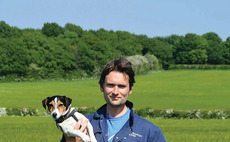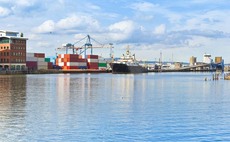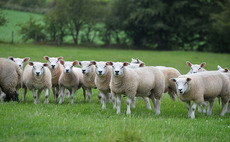Politics
Arable
Turbulence caused by Brexit and the coronavirus is not going away, but there are some positive lessons which can be learned from both, says Sue Pritchard, chief executive of the Food and Farming Countryside Commission.
Arable
After listening carefully to the arguments on both sides, Conservative High Peak MP Robert Largan decided he couldn’t vote for or against the Agriculture Bill amendment to ban low standard imports. Here, he explains why.
Arable
The mask has fallen. UK farmers have been betrayed by this Government, which promised to protect our food production standards in trade deals, says Leicestershire arable and beef farmer Joe Stanley.
Arable
Ensuring the UK’s food supply is secure must be a key aim in all of our future trade talks, as well as post-Brexit farm policy, says Conservative peer Anne McIntosh.
Arable
The Government’s failure to protect our standards in the Agriculture Bill was very disappointing, but UK farmers shouldn’t be too demoralised because they have high quality products to sell, says Andrew Robinson, head of agriculture at Armstrong Watson.
Arable
New checks on food products entering Northern Ireland from the rest of the UK will present a ‘significant challenge’ for business, the Food and Drink Federation (FDF) has said.
Arable
Bodies representing different parts of the food supply chain have urged Government to set out what kind of support it intends to offer businesses in the event of a second wave of coronavirus.
Arable
Farm groups have cautiously welcomed the Government’s new tariff schedule, which maintains protections for key agricultural products such as lamb, beef, poultry, cheese and butter.
Livestock
With Covid-19 magnifying the strategic importance of domestic food production following major supply chain disruption, the National Beef Association (NBA) has warned Government must take food security ‘seriously’.
Arable
Llyr Gruffydd, North Wales MS and Plaid Cymru’s Shadow Rural Affairs Minister, explains why the party is launching a new campaign to promote Welsh food.


 22 May 2020
•
4 min read
22 May 2020
•
4 min read








